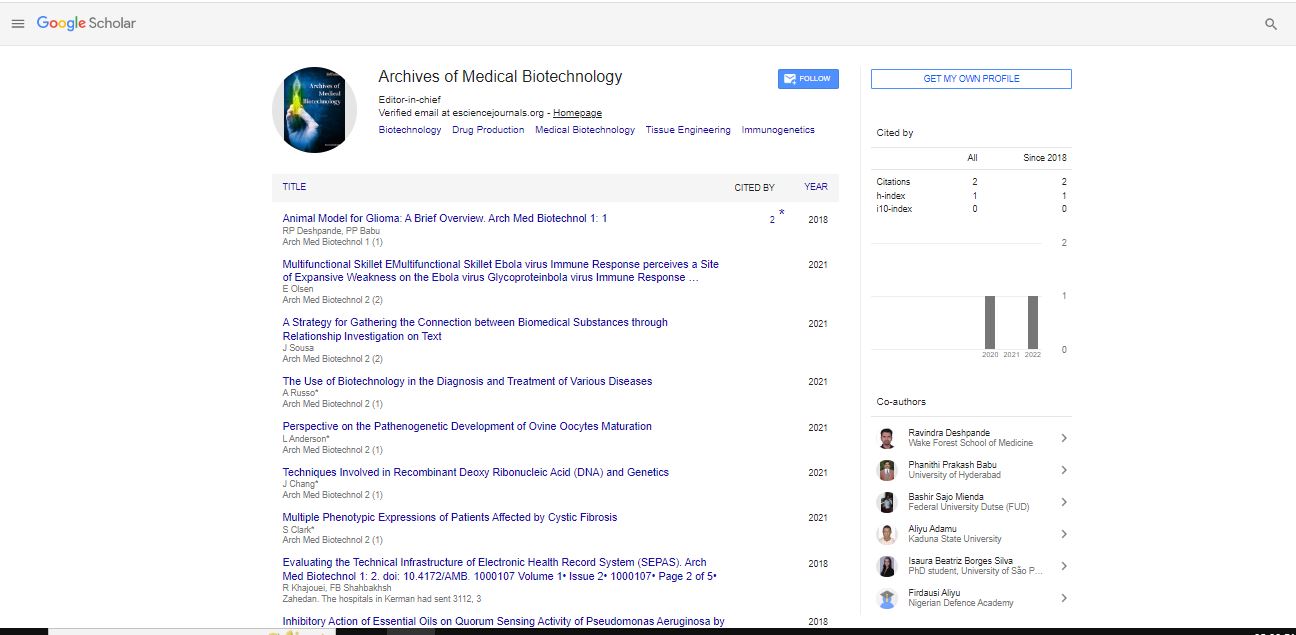Assessing the quality of antimalarial drugs from India using minilab: A field study
Taruna Katyal Arora and Neena Valecha
National Institute of Malaria Research, India
: Arch Med Biotechnol
Abstract
Substandard and counterfeit antimalarial medicines pose a serious threat to public health. These counterfeit/ substandard medicines increase the mortality by decreasing efficacy; it also increases the threat of emergence of drug resistance, adverse effect from incorrect excipients/ active ingredients which may be potentially dangerous to the patients. Owing to this, a pilot study was conducted to survey quality of drugs collected from different malaria endemic areas of India. The survey was conducted in different geographical regions on the basis of malaria endemicity i.e. Uttar Pradesh (U.P.), Mizoram, Meghalaya, Gujarat, Madhya Pradesh. Antimalarial samples of ACT (Artesunate+Sulphadoxine-pyremethamine), (Artesunate + Lumefantrine), Chloroquine, Primaquine were collected for qualitative analysis. A mystery shopper approach was used for collection of samples. The quality of antimalarial drugs from these areas was assessed by using Global Pharma Health Fund Minilab test kit. This includes physical/visual inspection and disintegration test, thin-layer chromatography. High performance liquid chromatography was carried out for quantitative assessment of active pharmaceutical ingredient. A total of 150 antimalarial samples were collected. These samples includes 55 (Chloroqunie), 50 (Artemether Lumefantrine), 14 (Artesunate Sulphadoxine-Pyrimethamine), 31 (Primaquine). These samples were assessed by quality using GPHF minilab lab kit. In this study 98% of the tablets passed minilab disintegration, 2% consisting did not passed disintegration test. 99% of samples passed preliminary Qualitative TLC test when compared with 100% and 80% of the standards. 96% of samples passed quantitative HPLC test, 4% of samples (contained low active pharmaceutical ingredient) did not passed this test. The substandard drugs circulating in the market causes drug resistance, treatment failure and finally leads to death. Additional analysis such as post-marketing surveillance should be done so that good quality antimalarials reached to the population.
Biography
Taruna Katyal Arora has completed PhD at the age of 30 years from Uttrakhand Technical University, Dehradun and Postdoctoral studies from National Institute of Malaria Research, New Delhi, India. She has published more than 14 papers in reputed Journals.
E-mail: tarunakatyal@gmail.com
 Spanish
Spanish  Chinese
Chinese  Russian
Russian  German
German  French
French  Japanese
Japanese  Portuguese
Portuguese  Hindi
Hindi 